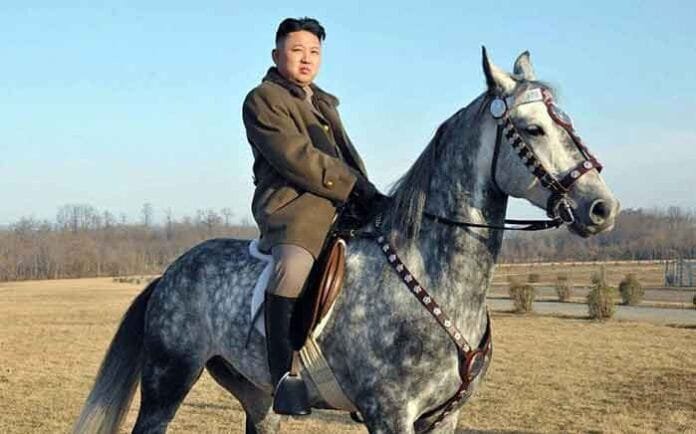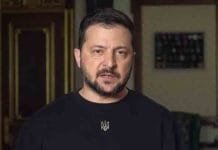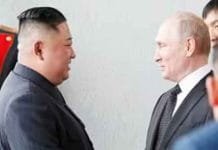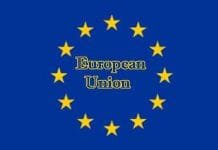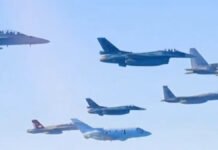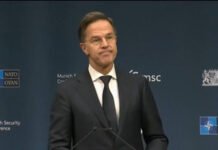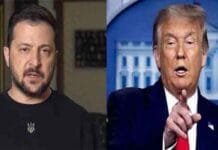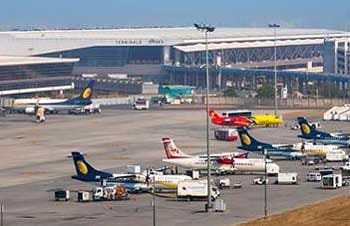INVC NEWS
Pyongyang : The relationship between Russian President Vladimir Putin and North Korean leader Kim Jong Un has grown increasingly notable on the global stage, particularly in light of recent events. A bond built on mutual interests and strategic exchanges, this friendship has manifested in various significant ways, including the exchange of highly symbolic and rare gifts. Most recently, Putin sent a remarkable gift to Kim Jong Un that has sparked widespread discussion and speculation: a collection of Orlov Trotter horses. This gesture is not just a simple gift but a reflection of the deep and complex relationship between these two powerful leaders.
Orlov Trotter Horses: A Gift with Historical and Symbolic Significance
The Orlov Trotter is a breed of horse renowned for its elegance, speed, and endurance, with a storied history in Russia. These horses are considered a symbol of Russian heritage and pride, making them an ideal gift to convey respect and camaraderie. Kim Jong Un’s fondness for this particular breed has been well-documented; he has been seen riding Orlov Trotters in the past, further underlining the personal significance of this gift.
Putin’s recent gift to Kim Jong Un comprised 24 purebred Orlov Trotters, including 19 stallions and 5 mares. This generous offering is not merely a token of friendship but a strategic gesture, possibly in response to the support Kim has provided to Russia amid the ongoing conflict with Ukraine.
The Strategic Context: North Korea’s Support in the Ukraine Conflict
The timing of this gift is crucial, as it follows North Korea’s alleged decision to supply a substantial amount of ammunition to Russia. This support is believed to be a significant factor in Russia’s ongoing military operations in Ukraine. By providing this aid, Kim Jong Un has positioned North Korea as a key ally to Russia during a critical time, thus strengthening the ties between the two nations.
Putin’s gift of the Orlov Trotters can be seen as a form of gratitude for this support, symbolizing Russia’s appreciation and the depth of the bilateral relationship. This exchange is more than a simple diplomatic gesture; it represents the growing alignment between Russia and North Korea, particularly in their shared opposition to Western influence.
Kim Jong Un’s Affinity for Orlov Trotters
Kim Jong Un’s admiration for Orlov Trotters is well-known, with previous instances highlighting his connection to these majestic animals. In 2019, Kim was famously seen riding a white Orlov Trotter on Mount Paektu, a sacred site in North Korea. The images of Kim astride the horse, draped in a long coat, were widely circulated, serving as powerful propaganda tools that emphasized his leadership and connection to Korean heritage.
The Orlov Trotter is not just a horse; it is a symbol of nobility, power, and endurance—qualities that resonate with the image Kim Jong Un seeks to project both domestically and internationally. By gifting these horses, Putin is not only appealing to Kim’s personal interests but also reinforcing the ideological and symbolic ties that bind their respective nations.
The Exchange of Gifts: A Tradition of Diplomatic Significance
The exchange of gifts between leaders is a time-honored tradition in international diplomacy, often carrying deep symbolic meaning. In the case of Putin and Kim, the gifts exchanged go beyond mere pleasantries—they represent strategic alignments and the solidification of alliances.
A few days prior to the gift of the Orlov Trotters, Putin visited North Korea, where Kim Jong Un presented him with Pungsan dogs. These dogs, known for their strength and hunting abilities, are native to North Korea and hold significant cultural value. The Pungsan dog is celebrated in Korean folklore for its ability to hunt tigers, symbolizing courage and loyalty.
In return, Putin gifted Kim with goats, which, while seemingly modest, are also symbolic of endurance and resilience—traits that are highly valued in both Russian and Korean cultures. These exchanges highlight the personal rapport between the two leaders and their mutual understanding of the symbolic weight such gifts carry.
The Broader Implications of the Putin-Kim Relationship
The deepening relationship between Putin and Kim is not just a matter of personal friendship but has significant geopolitical implications. As both Russia and North Korea face increasing isolation from the West, their alliance serves as a strategic counterbalance to Western influence in Asia and beyond.
North Korea’s support for Russia in the Ukraine conflict, through the provision of ammunition, is a clear indication of this alliance’s strategic depth. This support has likely been a critical factor in enabling Russia to sustain its military operations, highlighting the importance of the North Korean partnership.
For North Korea, the relationship with Russia offers a lifeline amid severe economic sanctions and international isolation. By aligning with a major global power like Russia, Kim Jong Un can bolster his regime’s stability and gain access to resources and support that would otherwise be out of reach.
A Friendship Forged in Mutual Interests
The exchange of Orlov Trotters between Putin and Kim Jong Un is more than a mere act of diplomacy; it is a powerful symbol of a burgeoning alliance based on shared interests and mutual support. As these two leaders continue to navigate the complexities of international politics, their relationship is likely to become an increasingly important factor in the global balance of power.
The symbolic gestures of gifting rare horses and hunting dogs are deeply rooted in the cultural and historical contexts of both nations, reflecting not only personal camaraderie but also strategic alignment. In a world where alliances are constantly shifting, the friendship between Putin and Kim Jong Un stands as a testament to the enduring power of shared interests and mutual respect.

